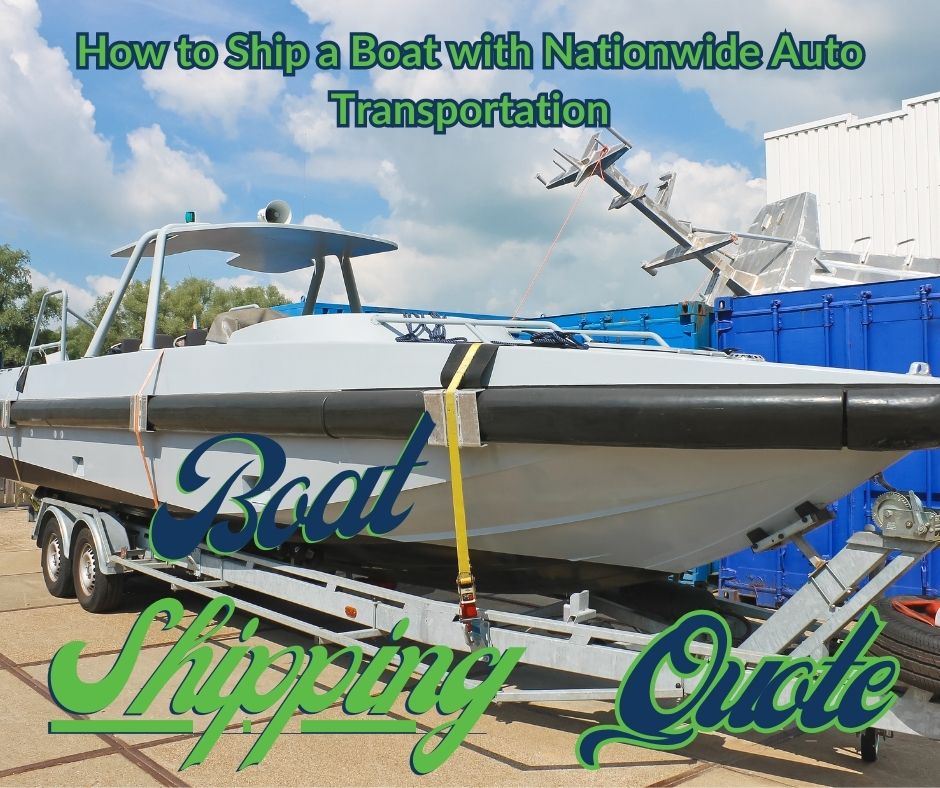
Reading Time: 12 minutes
Are you a frequent traveler who often finds yourself needing Convenient Vehicle Transportation from one location to another? Whether you’re relocating for a job, going on an extended vacation, or selling your vehicle to someone in another state, finding a convenient and reliable car transportation service is essential for effortless car shipping.
You’re not alone. Many people face the challenge of moving their cars or motorcycles to different cities or even across the country.
In this guide, we’ll explore the current state of Auto Transport Services. We also look at the associated risks, the energy use involved, and the future of this industry. By the end, you’ll have a better understanding of the options available to you..
But before we start, note that Car Shipping Services have evolved significantly in recent years. Thanks to advancements in technology, it’s now easier than ever to find a trustworthy company that can handle the job. From scheduling the pickup to tracking your vehicle’s journey, the process has become much more efficient and transparent.
Now, let’s explore the current state of vehicle transportation and understand the context in which these services operate.
National Highway Traffic Safety Administration
To ensure your vehicle meets all safety standards during transportation, the National Highway Traffic Safety Administration provides comprehensive guidelines. Learn more about vehicle safety standards and how they protect your car on the road.
Explore the top benefits of vehicle shipping in our easy-to-read guide. Moving? Buying a new car? Or just looking around? See how vehicle shipping can make things easier for you. Check out our detailed post here to learn how Nationwide Auto Transportation makes the process smooth, keeps your car safe, saves you time, and cuts down on stress. Start your hassle-free vehicle transport journey with us.
Current State of Vehicle Transportation

Welcome to the section on the current state of convenient car shipping! In this section, we’ll explore some interesting statistics and trends that highlight the importance and prevalence of vehicle transportation in today’s world.
Passenger miles in the United States
- Total U.S. passenger miles traveled in 2020 was 4.9 trillion[1]. This staggering number showcases the sheer volume of people relying on transportation to get from point A to point B.
Shift in Commutation Preferences | Convenient car shipping
- Over two-thirds (67%) of American commuters still use their own car to move between home and work[1]. This indicates that despite the availability of public transportation options, many people prefer the convenience and flexibility of using their own vehicle.
Market size of the Vehicle Shipping Services Industry
- The market size of the Vehicle Shipping Services industry declined by -5.8% in 2022[1]. While there was a slight decline, this industry remains an essential resource for individuals and businesses who need to transport vehicles over long distances.
Predominance of Light-Duty Vehicles
- Light-duty vehicles, such as cars and light trucks, are the most prevalent type of vehicle on U.S. roads. In fact, 91% of vehicles in the U.S. fall into this category[1]. These vehicles play a vital role in everyday transportation, contributing to the high demand for vehicle shipping services.
Now that you’re aware of the current state of vehicle transportation, let’s delve into the risks associated with it. But before that, if you want to know more about car shipping, check out this helpful guide: Car Shipping Made Easy.
[1] Source: Nationwide Auto Transportation.
Risks Associated with Vehicle Transportation

When it comes to convenient vehicle transportation, there are certain risks involved that you should be aware of. Whether you’re shipping your car across the country or simply driving it to a new location, it’s important to understand the potential dangers that may arise.
Let’s take a closer look at some of these risks:
Passenger Vehicle Dangers | Convenient vehicle transport services
- Accidents: Passenger vehicles are considered the most dangerous motorized transportation option. According to the National Highway Traffic Safety Administration (NHTSA), there were over 36,000 fatalities in motor vehicle crashes in the United States in 2019 alone. This highlights the importance of safe driving practices and being cautious on the road.
- Weather Conditions: Adverse weather conditions such as heavy rain, snowstorms, or fog can significantly impact the safety of vehicle transportation. These conditions can reduce visibility and make the road surfaces slippery, leading to a higher risk of accidents.
- Road Hazards: Potholes, debris, construction zones, and uneven road surfaces are all potential hazards that can cause damage to your vehicle or result in accidents. It’s important to be alert and drive defensively to avoid these risks.
- Vehicle Breakdowns: Mechanical failures can occur during vehicle transportation, especially if the car is being driven over long distances. These breakdowns can lead to delays and unexpected expenses for repairs.
- Theft and Vandalism: There is always a risk of theft or vandalism when transporting a vehicle. Whether it’s during the shipping process or leaving your car unattended in a new location, taking precautions such as parking in well-lit areas or utilizing security systems can help mitigate these risks.
Remember: It’s crucial to prioritize safety and minimize risk when transporting your vehicle. Whether you’re driving it yourself or relying on the services of a car shipping company, always take precautions and stay vigilant on the road.
“[…] there were over 36,000 fatalities in motor vehicle crashes in the United States in 2019 alone.”
Vehicle Transportation Energy use
When it comes to vehicle transportation, energy use is a significant factor to consider. The way we transport our vehicles has a direct impact on energy consumption and greenhouse gas emissions. In this section, we will explore the energy use associated with vehicle transportation and why it’s crucial to address this issue.
Light-Duty Vehicles and Energy Consumption
Light-duty vehicles, such as cars and pickups, account for a significant portion of the total energy consumed in the transportation sector. In fact, they contribute to about 53% of the total U.S. transportation energy use[1]. This high energy consumption is primarily due to the widespread use of cars, especially for personal commuting.
It’s essential to note that the energy use of a vehicle depends on various factors, including:

- Vehicle type: Different types of vehicles have different energy efficiency levels. Electric vehicles, for example, are more energy-efficient compared to traditional gasoline-powered vehicles.
- Driving behavior: Aggressive driving, such as rapid acceleration and braking, can lead to increased energy consumption.
- Route: The terrain, traffic conditions, and road quality can affect a vehicle’s fuel efficiency.
By understanding these factors, individuals can make informed decisions regarding vehicle transportation to reduce their energy footprint.
Moreover, understanding the regulations governing vehicle transportation is crucial. The Federal Motor Carrier Safety Administration offers detailed insights into the rules that keep our service compliant. Dive into the FMCSA regulations for a deeper understanding of the care we take with your vehicle.
Implications for Sustainable Transportation | convenient vehicle transport services
The energy consumption of vehicles has significant implications for sustainable transportation and efforts to mitigate climate change. Here are a few key points to consider:
- Reducing Energy Consumption: Encouraging the use of energy-efficient vehicles, such as electric cars, can help reduce overall energy consumption in the transportation sector. This shift towards cleaner and more efficient vehicles is crucial for achieving sustainability goals.
- Investing in Infrastructure: Developing robust charging infrastructure for electric vehicles can further promote their adoption and reduce reliance on fossil fuel-powered vehicles.
- Promoting Alternative Modes of Transportation: Encouraging the use of public transportation, cycling, and walking can significantly reduce energy consumption and promote sustainable transportation options.
- Policy Support: Governments can play a crucial role in promoting energy-efficient transportation by providing incentives for electric vehicle adoption, implementing stricter fuel efficiency standards, and investing in renewable energy sources.
“The energy consumption of vehicles has significant implications for sustainable transportation and efforts to mitigate climate change.”
Addressing the energy use associated with vehicle transportation is vital to transition towards a more sustainable future. By making conscious choices and embracing alternative modes of transportation, we can reduce our energy footprint and contribute to a greener and cleaner environment.
Sources:
[1]: Energy Transitions: Evolution Or Revolution? (2019), U.S. Energy Information Administration.

Next Topic: The Car Hauling Industry
The Car Hauling Industry

Do you have a new car that you need to transport across the country? Or maybe you’re relocating and need to move your vehicle to your new home. In these situations, car hauling services can be a lifesaver. But have you ever wondered about the car hauling industry itself? How does it operate, and what can you expect when you use their services? Let’s take a closer look at the car hauling industry and how it can make your life easier.
Car Hauling Industry Overview | Convenient vehicle transport services checked
The car hauling industry is an integral part of the vehicle transportation sector. It is responsible for transporting cars, trucks, and other light-duty vehicles from one location to another. This could be from a dealership to a customer, from an auction to a buyer, or even from a personal residence to a new location.
Key Players in the Car Hauling Industry
The car hauling industry consists of several key players who work together to provide seamless transportation services. These players include:
- Carriers – These are the companies that physically transport the vehicles. They have specialized trucks and trailers that are designed to handle the transportation of multiple vehicles at once.
- Brokers – Brokers act as intermediaries between vehicle owners and carriers. They help connect vehicle owners with the right carrier for their specific needs.
- Shippers – Shippers are the individuals or businesses that need to transport their vehicles. They book the transportation services and provide the necessary information to the brokers and carriers.
How the Car Hauling Process Works
The car hauling process typically involves the following steps:

- Request for Quote: Shippers reach out to brokers with details about their vehicle shipping needs, such as the origin and destination of the vehicle, type of vehicle, and desired timeframe.
- Carrier Selection: Brokers evaluate their network of carriers and select the one that can best meet the shipper’s requirements. Factors considered include carrier availability, reputation, and pricing.
- Vehicle Pickup: The carrier arranges for the pickup of the vehicle from the designated location. This could be a dealership, auction house, or even a private residence.
- Transportation: The carrier loads the vehicle onto a specialized truck or trailer and transports it to the specified destination. Throughout the transportation process, carriers take measures to ensure the safety and security of the vehicle.
- Delivery: Once the vehicle reaches the destination, the carrier unloads it and delivers it to the shipper. The shipper is responsible for inspecting the vehicle upon delivery to ensure it’s in the same condition as when it was loaded.
Benefits of Using a Car Hauling Service | Convenient Vehicle Transportation
There are several benefits to using a car hauling service for your vehicle transportation needs, including:

- Convenience: Car hauling services save you time and effort by taking care of the logistics of transporting your vehicle. You don’t have to worry about driving long distances or coordinating with multiple parties.
- Safety: Car hauling companies have experienced drivers who specialize in transporting vehicles. They know how to handle different types of vehicles and ensure their safety during transit.
- Insurance Coverage: Most car hauling services offer insurance coverage for your vehicle during transportation. This provides peace of mind knowing that your vehicle is protected in case of any unforeseen events.
- Efficient Transportation: Car hauling companies have the necessary equipment and expertise to transport multiple vehicles at once. This makes the process more efficient, saving both time and resources.
If you’re in need of vehicle transportation services, consider using a reputable car hauling company. They can provide you with a hassle-free experience and ensure that your vehicle arrives at its destination safely and securely. So, whether you’re moving across the country or need to transport a newly purchased car, let the car hauling industry take care of your vehicle transportation needs.
The Future of Vehicle Transportation: Autonomous Vehicles
Autonomous vehicles, also known as self-driving cars, have been a topic of fascination and excitement for many years. With advancements in technology and the increasing demand for convenient and efficient transportation options, autonomous vehicles are anticipated to completely transform the way we commute on roads. In this article, we’ll explore the future of vehicle transportation and delve into the world of autonomous vehicles.

Advancements in Technology = Convenient Vehicle Transportation
Advancements in technology have paved the way for the development of autonomous vehicles. With the integration of artificial intelligence, sensors, and advanced computing systems, self-driving cars are becoming a reality. These vehicles have the ability to perceive their surroundings, analyze data, make decisions, and navigate without human intervention.
Benefits of Autonomous Vehicles
The rise of autonomous vehicles brings with it a multitude of potential benefits:
- Improved Safety: One of the key advantages of autonomous vehicles is the potential for increased safety on the roads. With self-driving cars, the risk of human error, which is a leading cause of accidents, can be significantly reduced.
- Efficient Traffic Flow: Autonomous vehicles have the potential to optimize traffic flow and reduce congestion on roads. Through the use of advanced algorithms and real-time data, self-driving cars can communicate with each other and make decisions that optimize traffic patterns.
- Enhanced Accessibility: Autonomous vehicles have the potential to greatly improve accessibility for individuals with disabilities, the elderly, and those who are unable to drive. These self-driving cars can provide a newfound sense of independence and mobility for individuals who may have previously relied on others for transportation.
- Reduced Energy Consumption: Self-driving cars have the potential to contribute to reduced energy consumption and a greener environment. By optimizing driving patterns and reducing congestion, autonomous vehicles can lead to more efficient fuel consumption and lower emissions.
Challenges and Future Developments
While the future of autonomous vehicles is promising, there are still challenges to overcome before they become widely adopted:
- Regulatory Framework: The development and deployment of autonomous vehicles require a robust regulatory framework to ensure safety and compliance. Governments and regulatory bodies are working on establishing guidelines and regulations to facilitate the adoption of self-driving cars.
- Public Acceptance: Acceptance and trust from the public are crucial for the widespread adoption of autonomous vehicles. It will take time for people to feel comfortable relinquishing control to self-driving cars and fully embrace this new technology.
- Infrastructure Readiness: The infrastructure needs to be updated to support the integration of autonomous vehicles. This includes the installation of sensors, dedicated communication networks, and advanced traffic management systems.
Despite these challenges, the future developments in autonomous vehicles are highly anticipated:
“Autonomous vehicles have the potential to revolutionize the way we live and move. They will not only change the way we commute but also have a profound impact on various industries such as transportation, logistics, and urban planning.”

Convenient Vehicle Transportation | Your Ultimate Guide to Stress-Free Relocation
In conclusion, embracing the convenience of professional vehicle transportation marks the end of worrying about the logistics of moving your vehicles. Whether you’re traversing cities or spanning states, Nationwide Auto Transportation offers a trusted solution that caters to a range of needs – from open car transport to specialized services for motorcycles, classic cars, ATVs, and more.
As you go on new adventures or transition to new horizons, let Nationwide Auto Transportation shoulder the burden of vehicle logistics. With a robust network and a commitment to excellence, your prized vehicles will be in safe hands, transported with the utmost care and professionalism.
And for those with an eye on the auction circuit or seeking expedited routes, our tailored transport services from city to city ensure that your vehicle arrives on time and ready for the road.
Ready to simplify your vehicle transportation? Act now and get a personalized quote for your transportation needs. Embrace the ease of Nationwide Auto Transportation and shift your focus to where it matters most – your journey ahead.
- “Experience hassle-free open car transport tailored to meet your schedule and needs.”
- “Specialized motorcycle shipping services ensure your bike arrives without a scratch.”
- “Treasure your timeless beauty with our dedicated classic car auto transport services.”
- “Ready for the off-road? Secure ATV shipping across the United States with ease.”

Whether you’re bidding on a classic at an auction or moving your daily driver, our comprehensive routes include seamless transitions from bustling city centers to serene suburbs. Explore our dedicated routes for an experience that goes beyond mere transportation:
- “Navigate from the Gateway City to the capital with confidence using our St. Louis, MO to Washington, DC car shipping service.”
- “Fast-track your Florida to Missouri journey with our Tampa, FL to St. Louis, MO auto shipping experts.”
- “Bridge the gap between beachfronts and boulevards with our Miami to St. Louis, MO car transport options.”
For a curated list of top auto transportation blogs, articles, and news updates, head to Feedspot, a content reader providing comprehensive coverage across industries.
Frequently Asked Questions | Convenient Car Shipping
- What options do frequent travelers have for convenient vehicle transportation?
Frequent travelers have several options for convenient vehicle transportation, such as hiring a car transport service, using airport parking services, or utilizing ride-sharing services like Uber or Lyft.
- How does hiring a car transport service work?
When hiring a car transport service, you book a professional driver who will transport your vehicle from one location to another, either on an open or enclosed transport carrier. This service is especially useful for long-distance travel or when you don’t want to do the driving yourself.
- What are the benefits of using airport parking services?
Using airport parking services allows frequent travelers to park their vehicles securely and conveniently near the airport. It eliminates the stress of finding parking and provides peace of mind knowing that your vehicle is safe while you are away.
- Are ride-sharing services a reliable option for frequent travelers?
Yes, ride-sharing services like Uber or Lyft are a reliable option for frequent travelers. These services provide on-demand transportation to and from airports or other locations, allowing travelers to conveniently move around without the hassle of driving or parking their own vehicles.
- What factors should I consider when choosing a convenient vehicle transportation option?
When choosing a convenient vehicle transportation option, consider factors such as cost, convenience, reliability, safety, and your specific needs. Evaluate the pros and cons of each option and select the one that best suits your travel requirements.




